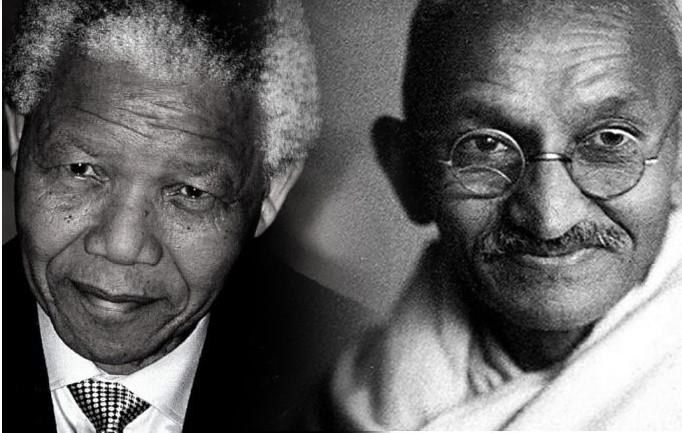
Sri Lanka's Long Quest For Ethical Politicians
Colombo, November 14: Sri Lanka is to elect a set of politicians on Thursday (14 November) who will decide the destiny of the nation in the next five years and beyond. Although the country has enjoyed universal franchise for 94 years, there is growing political scepticism and public distrust among the average politician in the country. Two years ago, this culminated in the aragalaya protest campaign, which called for '225 Members of Parliament to Go Home'.
It is imperative to change the negative image of the politician in the public eye and ethical politicians play a crucial role in restoring public faith in governance. While the media often spotlights corruption scandals and misuse of power, countless politicians across the globe serve with integrity, working to uplift communities, fight inequality, and make positive societal changes. These leaders show that ethical politics is not just an ideal but a powerful, attainable reality.
ADVERTISEMENTIt is essential to educate the average voter about the characteristics of ethical politicians before they elect their representatives this Thursday. Ethical politicians champion transparency. They make their decisions, actions, and the reasons behind them accessible to the public. This builds accountability and trust, as voters can understand where their leaders stand and how they are acting on behalf of their interests.
Ethical leaders have a strong moral compass. They consistently align their actions with their values, advocating for causes like justice, equality, and environmental sustainability. This consistency strengthens their credibility and inspires public confidence.
Unlike corrupt politicians, ethical leaders prioritise the needs of their constituents over personal gain. Whether it's economic development, healthcare, or education, they focus on improving the lives of their communities, demonstrating that public office is indeed a form of public service.
Ethical politicians often challenge the status quo, even when it's unpopular or places them at odds with powerful interests. This courage can lead to important legislative changes that benefit society as a whole, even if it risks their political career.
Throughout history, we see notable examples of ethical leaders who inspire faith in the political process in the world. In the last century, two major figures who rose from politics to the status of statesmanship were Mahatma Gandhi and Nelson Mandela. Known as the father of the Indian nation, Mahatma Gandhi's political ethics were grounded in nonviolence and truth, profoundly influencing India's independence movement and inspiring global leaders.
South Africa's anti-apartheid revolutionary and former President Nelson Mandela was renowned for his integrity, compassion, and commitment to equality and reconciliation. Many such leaders displayed a pragmatic approach to governance, prioritising what was right for the country over personal or partisan gains. These leaders show that, even in the most challenging circumstances, ethical governance can bring about transformative change.
Through such statesmen, the people realised that ethical politicians are essential for bridging the gap between the public and the Government. When people see their leaders acting in good faith, it reduces scepticism and builds a more engaged citizenry.
Sri Lanka, like many other developing countries, has seen the rise of corruption in politics over the years. Corruption is directly linked to poverty and socioeconomic instability. Honest leaders use resources effectively, investing in development projects and public services that can transform economies and uplift people out of poverty.
Politicians who act with integrity set a standard for the next generation, proving that leadership is a responsibility rather than an opportunity for self-enrichment. They inspire young people to take an interest in politics with an idealistic yet achievable vision.
Ethical leaders who prioritise values like peace, justice, and environmental sustainability are more likely to engage in constructive international relations. Their commitment to global standards fosters better cooperation on pressing issues like climate change, trade, and human rights.
Sri Lanka needs to encourage a Culture of Ethical Leadership and there are critical steps that can help foster and support ethical leadership. First of all, the awareness has to be improved. Schools, universities, and community organisations should educate citizens about the importance of ethical governance and how it impacts their lives. Awareness helps people identify and support honest leaders.
The Governments should create robust anti-corruption laws, with independent watchdogs and strict penalties. Ensuring transparency in campaign financing, public procurement, and governmental appointments can deter corruption.
Community-based leaders with a track record of ethical conduct should be encouraged to take on larger political roles. Since they are often connected with the community's needs, these individuals bring authenticity and accountability to the table.
The media has an important role in highlighting both corrupt practices and ethical political behaviour. Promoting responsible journalism that fact-checks and celebrates political integrity can influence public opinion and hold leaders accountable.
Ethical, honest, and uncorrupt politicians are not only possible but are essential to the democratic process and societal well-being. By setting a high standard for integrity in governance, they show that politics can indeed be a noble profession. Their influence goes beyond policies as they inspire citizens to believe in the power of positive change, fostering a more just, equitable, and prosperous world.
END

Legal Disclaimer:
MENAFN provides the information “as is” without warranty of any kind. We do not accept any responsibility or liability for the accuracy, content, images, videos, licenses, completeness, legality, or reliability of the information contained in this article. If you have any complaints or copyright issues related to this article, kindly contact the provider above.






















Comments
No comment